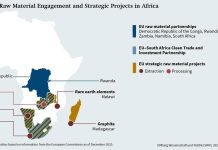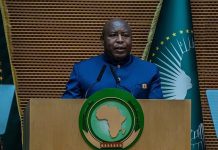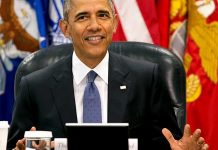Africa-Press – Mauritius. UN Secretary-General António Guterres in his address to the General Assembly declared: “The United Nations Charter and the ideals it represents are in jeopardy.
” Declarations to this effect by Guterres and his predecessors have had a timbre of their own conveying the idea of the ills menacing the world.
Guterres’ elaboration was no less lacking than his predecessors’ exhortations in conveying the notion of a hopeless, dystopian world gnawing at itself: None of these words moved any of the world’s leaders to action.
Instead, Russia’s President Putin announced a partial mobilization of citizens, seeking to recruit 300,000 soldiers to participate in his war of choice against Ukraine.
At the United Nations, US President Biden condemned Putin’s actions: his initial attack on Ukraine, his ongoing effort to extinguish Ukraine as a nation, his imperial ambition.
How and why do leaders choose war and destruction when they have the capacity for humanitarian gestures and cooperation? Pic – Quora
For his part, Putin cast himself in the role of victim, suggesting that his “special military operation” is part of a larger existential struggle of the Russian nation against the nations of the West that seeks to “weaken, divide and ultimately destroy our country.
” That his ambitions are imperial is not in doubt as the Kremlin’s planned referenda in the regions of Ukraine that Russia occupies are a prelude to their annexation into the Russian Federation.
These sham referenda will be used to justify further attacks on Ukraine if it seeks to liberate these annexed areas because they will then support the manufactured claim that Ukraine is attacking Russian territory.
Ukrainian President Zelensky’s vow to liberate all Ukrainian territory seized by Russia and his call for the UN to expel Russia and deem it a terrorist state suggest that no negotiated end to the Ukraine war is in the offing.
In a welcome note, but one that is at utter discord with the tenor of these pronouncements from Putin, Zelensky, and Biden, during the same week just after Putin announced his partial mobilization, we learned of a prisoner exchange between Ukraine and Russia in which Ukraine released Viktor Medvedchuk, a pro-Kremlin Ukrainian opposition politician, and 55 Russian fighters, and Russia released 215 Ukrainians and ten other foreign nationals (including two Americans).
The big surprise here was that this prisoner exchange was brokered by the combined efforts of Turkish President Erdogan and Saudi Crown Prince Mohammed bin Salman (MBS).
The aunt of one of the released Americans said: “I never dreamed it was a possibility that the Saudi government would be able to do something like this,” and US Secretary of State Antony Blinken also thanked “our Saudi partners for helping to spearhead this humanitarian initiative.
These developments should make us reflect and wonder how and why leaders choose war and destruction when they have the capacity for humanitarian gestures and cooperation. Why is it that more leaders don’t step forward and try to solve problems and make peace?
As I thought about all of this, my mind turned back to the first meeting that Blinken and National Security Advisor Jake Sullivan had with Chinese foreign affairs chief Yang Jiechi and State Councilor Wang Yi, in Anchorage, Alaska, at the outset of the Biden Administration.
One can see that the meeting was doomed to fail, not only from the pre-meeting spin put forth by Blinken and other American officials, but also from the public dressing down that Blinken attempted to deliver to Yang Jiechi for which he was rebuked in a lengthy rebuttal by Yang.
It is not that Blinken was wrong in stating: “Our administration is committed to leading with diplomacy to advance the interests of the United States and to strengthen the rules-based international order.
That system is not an abstraction. It helps countries resolve differences peacefully, coordinate multilateral efforts effectively and participate in global commerce with the assurance that everyone is following the same rules.
The alternative to a rules-based order is a world in which might makes right and winners take all. And that would be a far more violent and unstable world for all of us.
But note the absence of any mutuality in that statement.
There was no recognition of China’s interests, nor an attempt to align China’s interest in having a rules-based order with that of every other nation.
For More News And Analysis About Mauritius Follow Africa-Press







